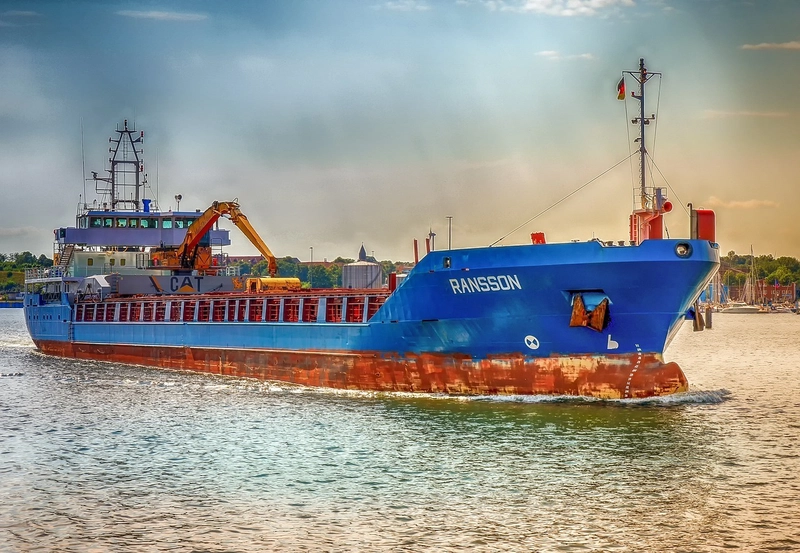The Evolution and Future Trends of the Shipping Industry

Jessica
Posted on November 28, 2024
The shipping industry is a critical component of global trade, responsible for transporting approximately 90% of the world's goods. Over the years, this industry has undergone significant transformations, driven by technological advancements, regulatory changes, and shifts in global trade dynamics. Today, the shipping industry faces both challenges and opportunities as it navigates the complexities of sustainability, digitalization, and geopolitical influences.

1. The Current State of the Shipping Industry
As of 2024, the shipping industry continues to play a vital role in supporting international trade, connecting markets, and driving economic growth. With container ships growing larger and more efficient, shipping companies are constantly seeking ways to optimize their fleets, reduce costs, and increase capacity. The industry is dominated by several key players, including Maersk, Mediterranean Shipping Company (MSC), and COSCO, which control a significant portion of the global shipping market.
Despite its essential role, the shipping industry is facing considerable challenges, particularly in the wake of the COVID-19 pandemic, which disrupted global supply chains. Ports faced severe congestion, and many shipping companies struggled with labor shortages, which slowed operations. As the industry rebounds, it has had to adapt to new consumer demands, environmental regulations, and a more complex global trade environment.
2. Key Challenges Facing the Industry
a) Environmental Regulations and Sustainability
One of the most pressing issues for the shipping industry is environmental sustainability. Shipping is a major contributor to global carbon emissions, accounting for around 2.89% of global CO2 emissions according to the International Maritime Organization (IMO). In response, the IMO has introduced stricter environmental regulations aimed at reducing the industry's carbon footprint. This includes the IMO 2020 regulation, which limits sulfur emissions from ships by mandating the use of cleaner fuels.
To meet these new regulations, shipping companies are investing in new technologies and alternative fuels. The development of liquefied natural gas (LNG) ships, hybrid vessels, and biofuels are part of the industry’s ongoing efforts to decarbonize. However, the transition to greener solutions is costly, and many companies face financial and logistical challenges in implementing these changes.
b) Digitalization and Automation
Digital transformation is another key factor shaping the future of the shipping industry. Automation, artificial intelligence (AI), and blockchain technology are being integrated into shipping operations to streamline processes, improve efficiency, and reduce human error. For instance, AI-driven predictive maintenance systems can help shipping companies monitor and maintain vessels more effectively, reducing downtime and operational costs.
Moreover, blockchain is revolutionizing supply chain management by enhancing transparency and security in shipping transactions. Digital platforms that track shipments, manage documentation, and handle payments are becoming more prevalent, reducing paperwork and speeding up processes.
The challenge, however, lies in ensuring that all stakeholders in the shipping industry adopt these technologies uniformly. There are concerns around cybersecurity, data privacy, and the initial investment costs of digital infrastructure.
c) Geopolitical and Economic Factors
The shipping industry is deeply affected by global political and economic conditions. Trade wars, tariffs, and economic sanctions can disrupt shipping routes and reduce trade volumes. For example, the U.S.-China trade war had a significant impact on shipping companies that relied on trans-Pacific trade routes.
Additionally, the ongoing war in Ukraine has disrupted Black Sea shipping lanes and posed new risks for shipping companies navigating in regions affected by conflict. The cost of fuel, which fluctuates due to geopolitical tensions, also impacts shipping operations, leading to unpredictable pricing for freight services.
3. Innovations and Opportunities in the Shipping Industry
Despite these challenges, the shipping industry is embracing innovation to secure its future. Autonomous ships are becoming a reality, with companies like Rolls-Royce and Kongsberg developing unmanned vessels that promise to reduce labor costs and enhance safety. While fully autonomous ships are not yet commonplace, the integration of automation in navigation, docking, and cargo handling is already improving efficiency.
In addition, the rise of e-commerce has created new opportunities for the shipping industry. The demand for faster deliveries and the expansion of global online marketplaces mean that shipping companies are focusing more on last-mile logistics and regional shipping networks.
Sustainability efforts also present opportunities for growth. Companies that successfully transition to greener practices may gain a competitive edge in the market. Furthermore, partnerships with renewable energy providers and investments in zero-emission technologies could create new revenue streams for the shipping industry.
4. The Future Outlook of the Shipping Industry
The future of the shipping industry will be shaped by its ability to adapt to environmental regulations, technological advancements, and global trade shifts. The push toward sustainability will continue to drive innovation, with companies investing in cleaner technologies and exploring alternative fuels. Digitalization will further enhance efficiency and transparency, allowing for better management of global supply chains.
While challenges such as geopolitical instability and economic fluctuations remain, the shipping industry is resilient. Its ability to evolve and innovate has kept it at the heart of global trade for centuries, and this adaptability will be key to its continued success in the future.
Conclusion
The shipping industry is undergoing a period of transformation, marked by challenges and opportunities. As the world becomes more interconnected and environmentally conscious, shipping companies must focus on sustainable practices, embrace digitalization, and navigate geopolitical complexities. Those that successfully adapt to these changes will thrive in the evolving global market.

Posted on November 28, 2024
Join Our Newsletter. No Spam, Only the good stuff.
Sign up to receive the latest update from our blog.


